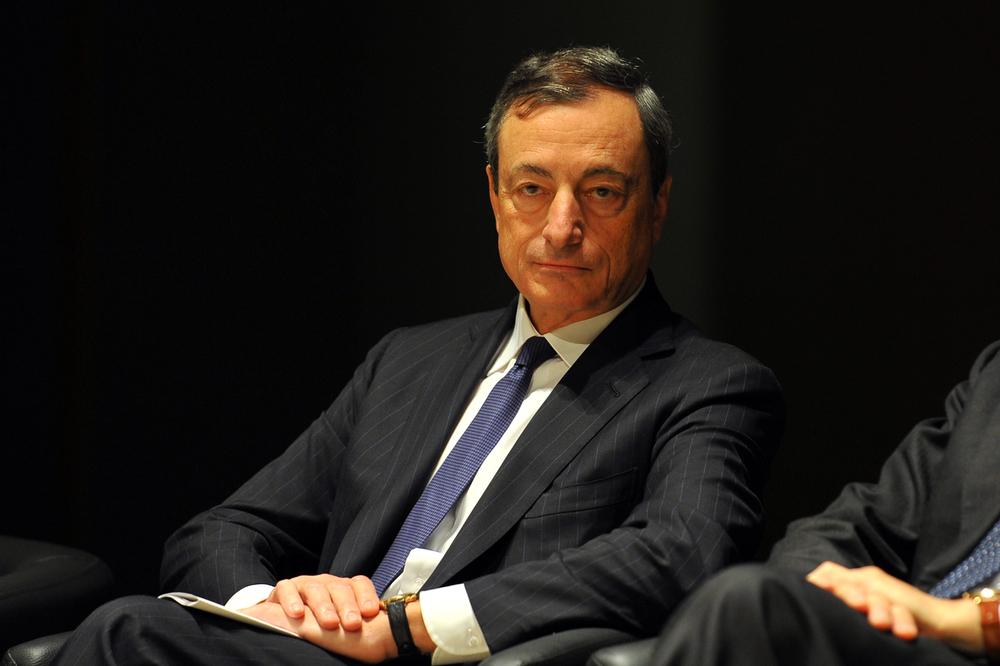The ECB left interest rates unchanged at their monetary policy meeting this month and neglected to extend their quantitive easing programme, causing European shares to drop after the announcement.
In the press conference following the release, ECB President Mario Draghi spoke on the factors currently dampening Euro Area recovery and the importance of fiscal policy to achieve balanced economic growth.
Rates remain unchanged
Interest rates on main refinancing operations, marginal lending facilities and the deposit facilities will remain unchanged at 0.00%, 0.25% and -0.40% respectively.
The current monthly asset purchasing program of €80 billion will run until at least the end of March 2017, subject to further extension if necessary to achieve the Banks goal of inflation just below but close to 2%. However, markets were expecting the announcement of a further quantitive easing programme ahead of March 2017.
At the press conference, Mario Draghi stated:
“We continue to expect them [interest rates] to remain at present or lower levels for an extended period of time and well past the horizon of our net asset purchases.”
While EMU recovery continues, subdued foreign demand has some adverse impact
Draghi drew attention to improvements in the labour market, as well as low oil prices, which have improved households’ purchasing power. Data suggests that Euro Area recovery continued to progress at a slow but steady pace.
However, Draghi also pointed to “subdued foreign demand, partly due to the uncertainty after the recent Brexit vote, necessary balance sheet adjustments in a number of sectors and the “sluggish pace of implementation of structural reforms”, as several factors which continue to negatively impact the Euro Area’s recovery.
The annual GDP projections were revised upwards to 1.7% in 2016, but downwards to 1.6% in both 2017 and 2018. The economic recovery of the Euro Area is expected to continue on its slow but steady upward trajectory for the rest of the year.
Draghi commented:
“If warranted we will act by using all the instruments available within our mandate.”
Low interest rates are not hurting banks
In response to questions relating to the efficiency and negative impacts of low interest rates, Draghi stated that “the transmission of monetary policy has never worked better than it does today”. Transmission of interest rates to lending rates has been almost immediate and has not negatively impacted the abilities of banks to make loans. Service demand and supply has increased, driving lending, thanks to heightened competition between banks.
Banks had reported profits dropping as much as 20% in the second quarter of both 2015 and 16. However Draghi mentioned that this has been a consequence of huge profits in the first quarters of both years, due to the beginning of the ECB’s asset purchasing programs. He also stressed that low interest rates should not be used to excuse all that has “gone wrong” with banks lately.
There has been no evidence of cash hoarding, a commonly mentioned possible negative consequence of negative interest rates.
Draghi: “Interest rates need to be low today for being high tomorrow”
While Draghi recognised that prolonged low interest rates are likely to evenutally have adverse consequences for banks, he asked for patience from the markets. He underlined that interest rates need to stay low to support of the EMU’s economic recovery which, in the future, will also benefit banks.
Draghi stresses importance of fiscal policy
In his opening statement, as well as on later inquiry in the Q&A session, Draghi stressed that structural reforms, aimed at raising productivity and an improved business environment, are necessary throughout the Euro Area, to support the region’s economic recovery.
Quoting a G20 press communique from the 5th September, he stated:
“…monetary policy alone cannot lead to balanced growth, underscoring the essential role of structural reforms, we emphasise that our fiscal strategies are equally important in supporting our common growth subjective.”
Katharina Fleiner 08/09/2016




